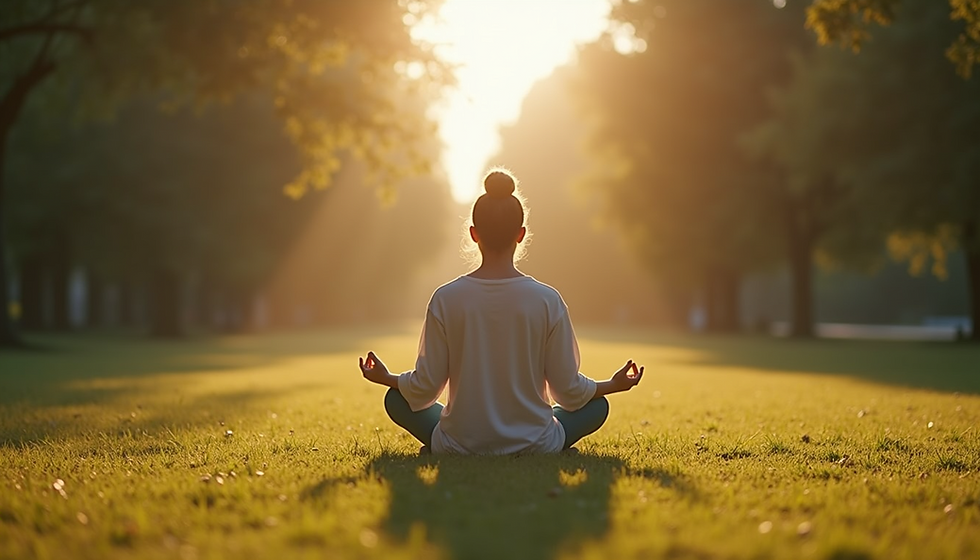Dining
- daniellecicc
- Sep 21, 2025
- 4 min read
Updated: Sep 23, 2025
In today's fast-paced world, finding balance can feel like a daunting task. Many of us juggle work, family, and personal interests, often leaving little time for ourselves. However, achieving a sense of balance is not only possible, but it can also lead to a more fulfilling life. In this post, we will explore practical strategies to help you find that balance, allowing you to thrive in all areas of your life.
Understanding Balance
Balance is not just about dividing your time equally among various activities. It is about prioritizing what matters most to you. This means recognizing your values and aligning your daily actions with them.
The Importance of Balance
Finding balance is crucial for mental and physical well-being. When we feel overwhelmed, stress levels can rise, leading to burnout. By maintaining balance, we can improve our focus, productivity, and overall happiness.
Identifying Your Priorities
To achieve balance, start by identifying your priorities. Ask yourself what truly matters in your life. This could include:
Family
Career
Health
Hobbies
Social life
Once you have a clear understanding of your priorities, you can allocate your time and energy accordingly.
Creating a Priority List
Consider making a list of your top five priorities. This will serve as a guide for your daily decisions. For example, if family is your top priority, you might choose to spend more evenings at home rather than working late.
Time Management Techniques
Effective time management is key to achieving balance. Here are some techniques to help you manage your time better:
Set Clear Goals: Define what you want to achieve in both the short and long term.
Use a Planner: Whether digital or paper, a planner can help you keep track of your commitments.
Prioritize Tasks: Use the Eisenhower Matrix to distinguish between what is urgent and important.
Set Boundaries: Learn to say no to activities that do not align with your priorities.
Schedule Downtime: Make sure to include time for relaxation and self-care in your schedule.
Example of a Weekly Planner
Here is a simple example of how you might structure your week:
Monday: Family dinner, gym in the morning
Tuesday: Work on a personal project, catch up with a friend
Wednesday: Family time, read a book
Thursday: Work late, plan for the weekend
Friday: Date night, movie night with kids
Saturday: Outdoor activity, grocery shopping
Sunday: Relax, prepare for the week ahead
Embracing Flexibility
While having a plan is essential, it is equally important to remain flexible. Life is unpredictable, and sometimes things do not go as planned. Embracing flexibility allows you to adapt to changes without feeling overwhelmed.
Tips for Staying Flexible
Be Open to Change: Accept that plans may need to shift and that is okay.
Practice Mindfulness: Stay present and focused on the moment, which can help reduce stress.
Reassess Regularly: Take time to evaluate your priorities and adjust your plans as needed.
Building a Support System
Having a strong support system can make a significant difference in achieving balance. Surround yourself with people who understand your goals and can offer encouragement.
Ways to Build Your Support System
Connect with Family: Share your goals with family members and ask for their support.
Join Groups: Look for local or online groups that align with your interests.
Seek Professional Help: If you are struggling, consider talking to a coach or therapist.
Practicing Self-Care
Self-care is not a luxury; it is a necessity. Taking care of yourself allows you to be more present and effective in all areas of your life.
Simple Self-Care Ideas
Exercise Regularly: Aim for at least 30 minutes of physical activity most days.
Eat Well: Focus on a balanced diet that nourishes your body.
Get Enough Sleep: Prioritize sleep to recharge your mind and body.
Engage in Hobbies: Make time for activities that bring you joy.
The Role of Mindfulness
Mindfulness can play a crucial role in achieving balance. By practicing mindfulness, you can become more aware of your thoughts and feelings, helping you make better decisions.
Mindfulness Techniques
Meditation: Spend a few minutes each day in quiet reflection.
Deep Breathing: Practice deep breathing exercises to reduce stress.
Gratitude Journaling: Write down things you are grateful for to shift your focus to the positive.
Setting Realistic Expectations
It is essential to set realistic expectations for yourself. Trying to do too much can lead to disappointment and stress.
How to Set Realistic Goals
Break Goals into Smaller Steps: Instead of aiming for a big goal, break it down into manageable tasks.
Celebrate Small Wins: Acknowledge your progress, no matter how small.
Be Kind to Yourself: Understand that it is okay to have setbacks.
Finding Joy in the Journey
Balance is not just about the destination; it is about enjoying the journey. Take time to appreciate the little moments in life.
Ways to Find Joy Daily
Practice Gratitude: Start or end your day by reflecting on what you are thankful for.
Connect with Nature: Spend time outdoors to recharge and find peace.
Laugh Often: Surround yourself with humor and joy.
The Power of Reflection
Regular reflection can help you stay on track and adjust your approach as needed. Take time to evaluate your progress and make changes if necessary.
Questions for Reflection
What is working well in my life right now?
What areas need more attention?
How can I better align my actions with my priorities?
Conclusion: Embracing Your Unique Path
Finding balance is a personal journey. It requires self-awareness, flexibility, and a commitment to your priorities. By implementing these strategies, you can create a life that feels balanced and fulfilling. Remember, it is not about perfection but about progress. Embrace your unique path and enjoy the journey toward a more balanced life.



Comments